Guest Post by Scott Ritter
Kiev was offered a peace deal long ago, but chose war instead, egged on by its Western backers. Now its fate is sealed
Scott Ritter is a former US Marine Corps intelligence officer and author of ‘Disarmament in the Time of Perestroika: Arms Control and the End of the Soviet Union.’ He served in the Soviet Union as an inspector implementing the INF Treaty, in General Schwarzkopf’s staff during the Gulf War, and from 1991-1998 as a UN weapons inspector.
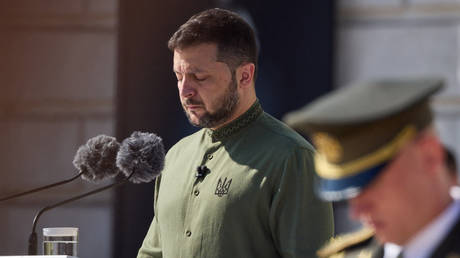
Vladimir Zelensky attends a ceremony marking Ukraine’s Independence Day in Kiev © Handout / UKRAINIAN PRESIDENTIAL PRESS SERVICE / AFP
September 2 marked the 78th anniversary of the World War Two surrender ceremony onboard the USS Missouri in Tokyo Bay. This moment formalized Japan’s unconditional capitulation to the United States, and its allies, and marked the end of the conflict. From the Japanese perspective, it had been ongoing since the Marco Polo bridge incident of July 7, 1937, which started the Sino-Japanese War.
There was no negotiation, only a simple surrender ceremony in which Japanese officials signed documents, without conditions.
Because that is what defeat looks like.
History is meant to be studied in a manner that seeks to draw out lessons from the past that might have relevance in the present. As George Santayana, the American philosopher, noted, “Those who cannot remember the past are condemned to repeat it.” The Ukrainian government in Kiev would do well to reflect on both the historical precedent set by Japan’s unconditional surrender, and Santayana’s advice, when considering its current conflict with Russia.
First and foremost, Ukraine must reflect honestly about the causes of this conflict, and which side bears the burden of responsibility for the fighting. ‘Denazification’ is a term that the Russian government has used in describing one of its stated goals and objectives. President Vladimir Putin has made numerous references to the odious legacy of Stepan Bandera, the notorious mass murderer and associate of Nazi Germany who is feted by modern-day Ukrainian nationalists as a hero and all but a founding father of their nation.
That present-day Ukraine would see fit to elevate a man such as Bandera to such a level speaks volumes about the rotten foundation of Kiev’s cause, and the dearth of moral fiber in the nation today. The role played by the modern-day adherents of the Nazi collaborator’s hateful nationalist ideology in promulgating the key events that led to the initiation of the military operation by Russia can neither be ignored nor minimized. It was the Banderists, with their long relationship with the CIA and other foreign intelligence services hostile to Moscow, who used violence to oust the former president of Ukraine, Viktor Yanukovich, from office in February 2014.
From the act of illicit politicized violence came the mainstreaming of the forces of ethnic and cultural genocide, manifested in the form of the present-day Banderists, who initiated acts of violence and oppression in eastern Ukraine. This, in turn, triggered the Russian response in Crimea and the actions of the citizens of Donbass, who organized to resist the rampage of the Bandera-affiliated Ukrainian nationalists. The Minsk Accords, and the subsequent betrayal by Kiev and its Western partners of the potential path for peace that these represented, followed.
Ukraine cannot disassociate itself from the role played by the modern-day Banderists in shaping the present reality. In this, Kiev mirrors the militarists of Imperial Japan, whose blind allegiance to the precepts of Bushido, the traditional ‘way of the warrior’ dating back to the Samurai of 17th century Japan, helped push the country into global conflict. Part of Japan’s obligations upon surrender was to purge its society of the influence of the militarists, and to enact a constitution that deplatformed them by making wars of aggression – and the military forces needed to wage them – unconstitutional.
Banderism, in all its manifestations, must be eradicated from Ukrainian society in the same manner that Bushido-inspired militarism was removed from Japan, to include the creation of a new constitution that enshrines this purge as law. Any failure to do so only allows the cancer of Banderism to survive, festering inside the defeated body of post-conflict Ukraine until some future time when it can metastasize once again to bring harm.
This is precisely the message that was being sent by Putin when, during the Saint Petersburg International Economic Forum this past July, he showed a video where the crimes of the Banderists during the Second World War were put on public display. “How can you not fight it?” Putin said. “And if this is not neo-Nazism in its current manifestation, then what is it?” he asked. “We have every right,” the Russian president declared, “to believe that the task of the denazification of Ukraine set by us is one of the key ones.”
As the Western establishment media begins to come to grips with the scope and scale of Ukraine’s eventual military defeat (and, by extension, the reality of a decisive Russian military victory), their political overseers in the US, NATO, and the European Union struggle to define what the endgame will be. Having articulated the Russian-Ukrainian conflict as an existential struggle where the very survival of NATO is on the line, these Western politicians now have the task of shaping public perception in a manner that mitigates any meaningful, sustained political blowback from constituents who have been deceived into tolerating the transfer of billions of dollars from their respective national treasuries, and billions more dollars’ worth of weapons from their respective arsenals, into a lost and disgraced cause.
A key aspect of this perception management is the notion of a negotiated settlement, a process which implies that Ukraine has a voice as to the timing and nature of conflict termination. The fact is, however, that Kiev lost this voice when it walked away from a peace deal brokered between its negotiators and their Russian counterparts last spring, at the behest of its NATO masters as communicated through then-UK Prime Minister Boris Johnson. The decision to prolong the conflict was predicated on the provision to Kiev of tens of billions of dollars in military equipment and assistance. The authorities duly staged a mass mobilization, meaning that Ukrainian troops vastly outnumbered their Russian counterparts.
Kiev’s new NATO-trained and equipped force achieved impressive territorial gains during a fall offensive. The Russian reaction was to stabilize the front and carry out a partial mobilization of its reserves to accumulate enough manpower to accomplish the mission assigned from the outset of the operation – denazification and demilitarization. Denazification is a political problem. Demilitarization is not. In the case of Ukraine, it means to effectively destroy Ukraine’s ability to wage armed conflict on a meaningful scale against Russia. This objective also presumably entails the need to remove all NATO military infrastructure, inclusive of equipment and material, from Ukraine.
Russia has been undertaking the successful demilitarization of Ukraine’s armed forces since the initiation of partial mobilization. The equipment Ukraine is provided by the West is similarly being destroyed by Russia at a rate that makes replacement unsustainable. Meanwhile, Russia’s own defense industry has kicked into full gear, supplying a range of modern weapons and ammunition that is more than sufficient.
The harsh reality is that neither Ukraine nor its Western allies can sustain the operational losses in manpower and equipment that the conflict with Russia is inflicting. Russia, on the other hand, is not only able to absorb its losses, but increase its strength over time, given the large number of volunteers that are being recruited into the military and the high rate of armament production. At some point in the not-so-distant future, the balance of power between Russia and Ukraine in the theater of operations will reach a point in which Kiev is unable to maintain adequate coverage along the line of contact, allowing gaps to open up in the defensive line which Russia, able to employ fresh reserves, will exploit. This will lead to the collapse of cohesion among Ukrainian troops, more than likely resulting in a precipitous withdrawal to more defensive positions that could be established west of the Dnieper River.
Ukraine, through its actions in 2014, lost Crimea. Ukraine, and through its choices in 2022, lost the Donbass, Zaporozhye, and Kherson. And if Kiev persists in extending this conflict until it is physically unable to defend itself, it runs the risk of losing even more territory, including Odessa and Kharkov.
Russia did not enter the conflict with the intent of seizing Ukrainian territory. But in March 2022, Kiev rejected a draft peace agreement (which it had preliminarily approved at first), and this decision to eschew peace in favor of war led to Russia absorbing Donbass, Zaporozhye, and Kherson.
As one of its conditions to even begin negotiating for peace with Moscow, Kiev demanded the return of all former Ukrainian territories currently under Russian control – including Crimea. To achieve such an outcome, however, Ukraine would have to be able to compel compliance by defeating Russia militarily and/or politically. As things stand, this is an impossibility.
What Ukraine and its Western partners do not yet seem to have come to grips with is the fact that Russia’s leadership is in no mood for negotiations for negotiations’ sake. Putin has listed its goals and objectives when it comes to the conflict – denazification, demilitarization, and no NATO membership for Ukraine.
This is the reality of the present situation. Russia is working to achieve its stated goals and objectives. As things stand, there is little Ukraine or its partners in the US, NATO, and the EU (the so-called ‘collective West’) can do to prevent it from accomplishing these aims. The timeline is not calendar-driven, but rather determined by results. The longer Kiev – and its Western partners – drag out this conflict, the greater the harm that will accrue for Ukraine.
It is time for Ukraine and its Western partners to move to the path of peace and reconstruction. But this can only happen when Ukraine surrenders and accepts reality.








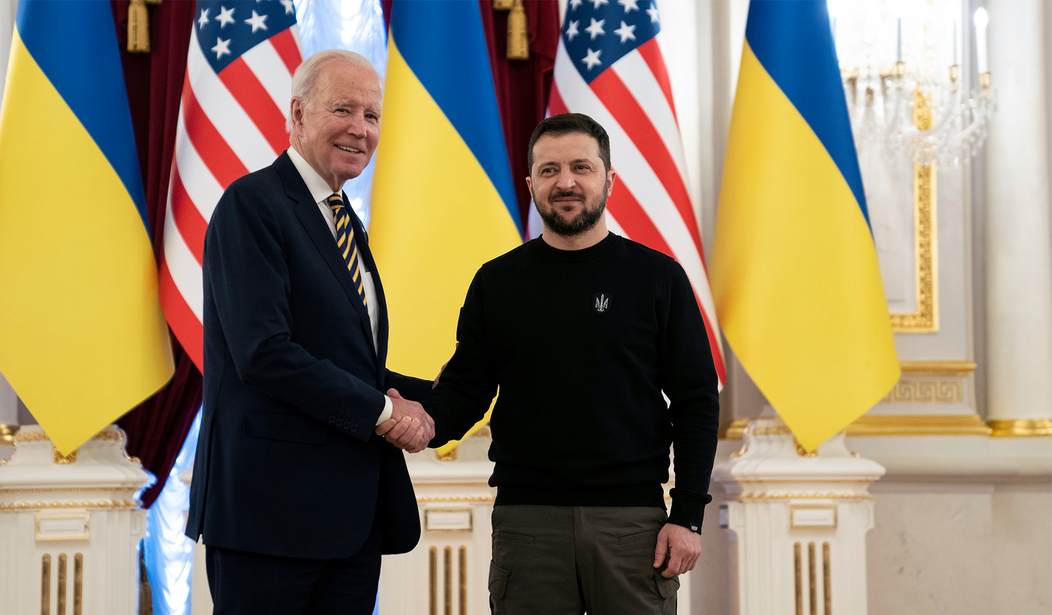
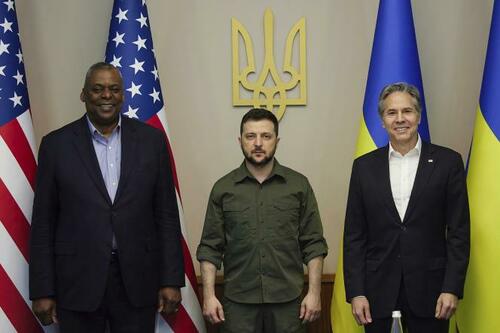
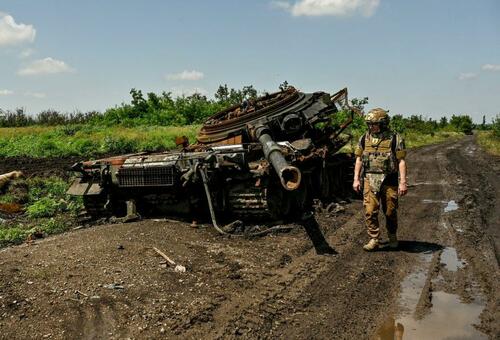
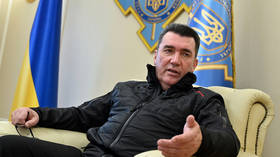



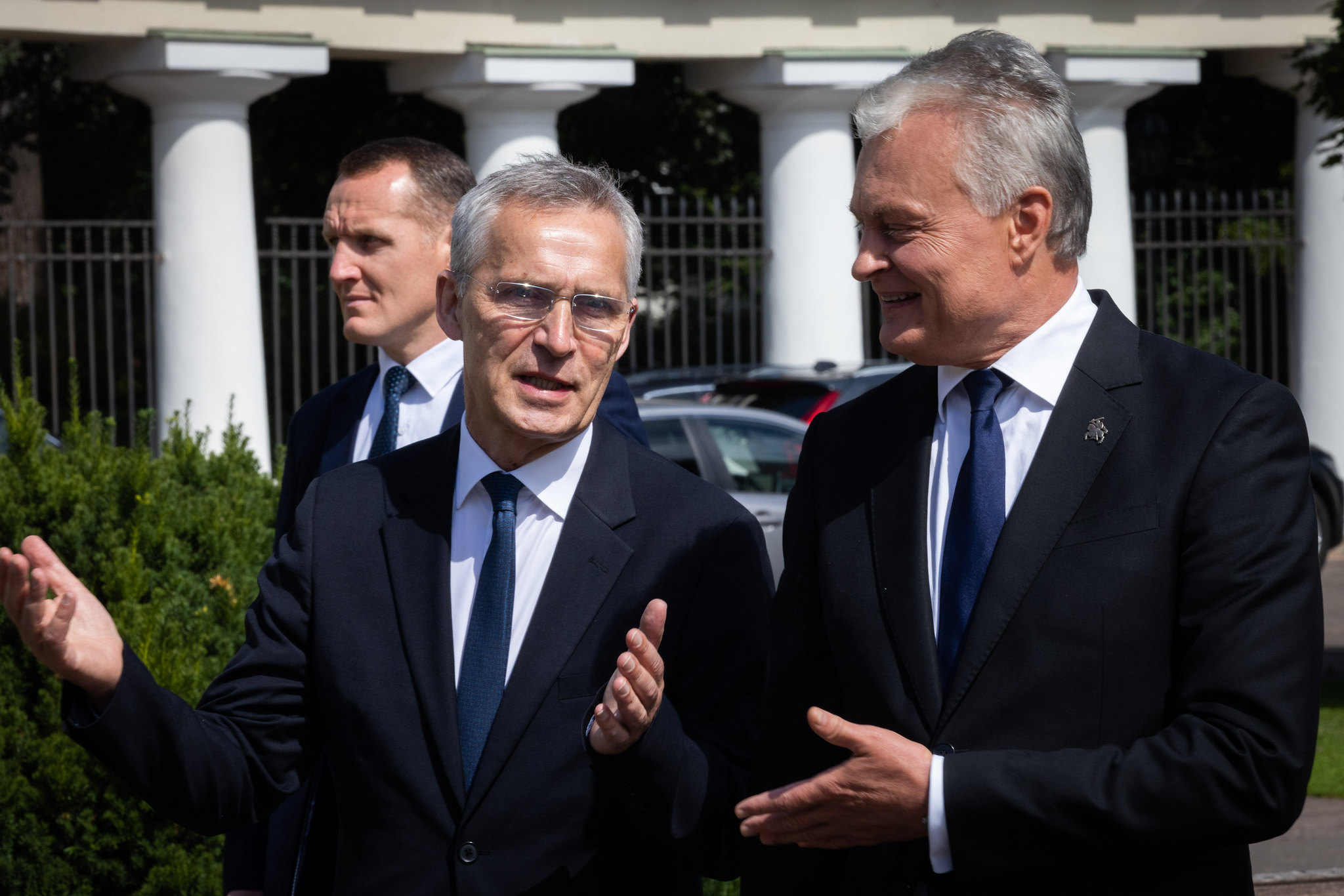 NATO Secretary General Jens Stoltenberg and Lithuanian President Gitanas Nauseda, on June 26. (NATO)
NATO Secretary General Jens Stoltenberg and Lithuanian President Gitanas Nauseda, on June 26. (NATO)